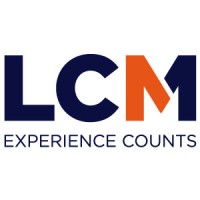Litigation Capital Management Limited Positive Update on Fund I Investment

Litigation Capital Management Limited (AIM:LIT), an alternative asset manager specialising in dispute financing solutions internationally, announces a positive development on an investment within its Fund I portfolio.
LCM has funded a claim advanced in respect of an international arbitration claim brought against the Republic of Poland under the United Nations Commission on International Trade Law (UNCITRAL) Rules. The Tribunal has unanimously held in favour of the funded party that the Republic of Poland breached its obligations under the Australia-Poland Bilateral Investment Treaty and the Energy Charter Treaty.
The quantum of the award entered in favour of LCM’s funded party totals A$490 million plus interest.
LCM’s funded party has therefore been successful in the claim. If the award is not subject to challenge and is not satisfied the dispute will move to an enforcement stage. We will assess any further funding requirements once the enforcement strategy has been finalised.
The total investment into the case to date is A$16.6 million (US$11.3 million). This investment comprises A$4.2 million (US$2.8 million) from LCM’s own balance sheet and A$12.4 million (US$8.5 million) of third party capital from Fund I. In line with our usual practice LCM’s returns are calculated as a rising multiple of invested capital over time.
This investment is no longer attended with liability and quantum risk as that has been decided. Final performance will be announced to the market after conclusion of the investment. However, if the award is satisfied within a reasonable period without the need for enforcement, then based upon the contractual terms with the funded party as at the date of this announcement, LCM would be entitled to a multiple of 6 times its own invested capital plus significant performance fees on third party capital invested.
Patrick Moloney, CEO of LCM, commented: “This announcement represents a very significant milestone in this investment. Subject to any challenge to the very favourable and unanimous award we now move to an enforcement stage. This investment is part of Fund I and therefore stands to benefit from significant performance fees giving it the potential to be the most successful investment in LCM’s history.”
About LCM
Litigation Capital Management (LCM) is an alternative asset manager specialising in disputes financing solutions internationally, which operates two business models. The first is direct investments made from LCM’s permanent balance sheet capital and the second is third party fund management. Under those two business models, LCM currently pursues three investment strategies: Single-case funding, Portfolio funding and Acquisitions of claims. LCM generates its income from both its direct investments and also performance fees through asset management.
LCM has an unparalleled track record driven by disciplined project selection and robust risk management. Currently headquartered in Sydney, with offices in London, Singapore, Brisbane and Melbourne, LCM listed on AIM in December 2018, trading under the ticker LIT.




